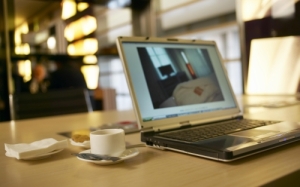Fire officials believe the cause of the flu-like symptoms is carbon monoxide after measuring high levels of the potentially deadly gas, a San Francisco Fire Department spokeswoman said.
 “The hotel staff promptly contacted the fire department to assess the situation and assist with transporting the guests to area hospitals for treatment,†Singer said.
“The hotel staff promptly contacted the fire department to assess the situation and assist with transporting the guests to area hospitals for treatment,†Singer said.
Investigators discovered that the air intake for the hotel is on the Stevenson Street side of the building so it draws air in from the outside, Talmadge said. “They’re thinking the carbon monoxide might have come from outside through their intake system.â€
Four guests at the San Francisco Marriott Marquis fell ill late Thursday after being exposed to carbon monoxide in their downtown hotel rooms, authorities said. The four guests were flight attendants staying in four separate rooms at the hotel, located at the intersection of Fourth and Mission streets, hotel spokesman Sam Singer said.
The San Francisco Marriott Marquis issued the following statement today: “Early this morning four guests at the San Francisco Marriott Marquis complained of flu-like symptoms. The hotel staff promptly contacted the fire department to assess the situation and assist with transporting the guests to area hospitals for treatment.
The four guests were transported to San Francisco General Hospital and St. Francis Memorial Hospital where they “are now doing well,†Singer said.
“Initially we believed it to be the heating system in the rooms,†fire Lt. Mindy Talmadge said. “But after further investigation we determined it couldn’t be the heating system because they use a steam system which doesn’t use carbon monoxide.â€
For more: http://www.sanfranciscosentinel.com/?p=102638
(Visited 83 times, 1 visits today)










